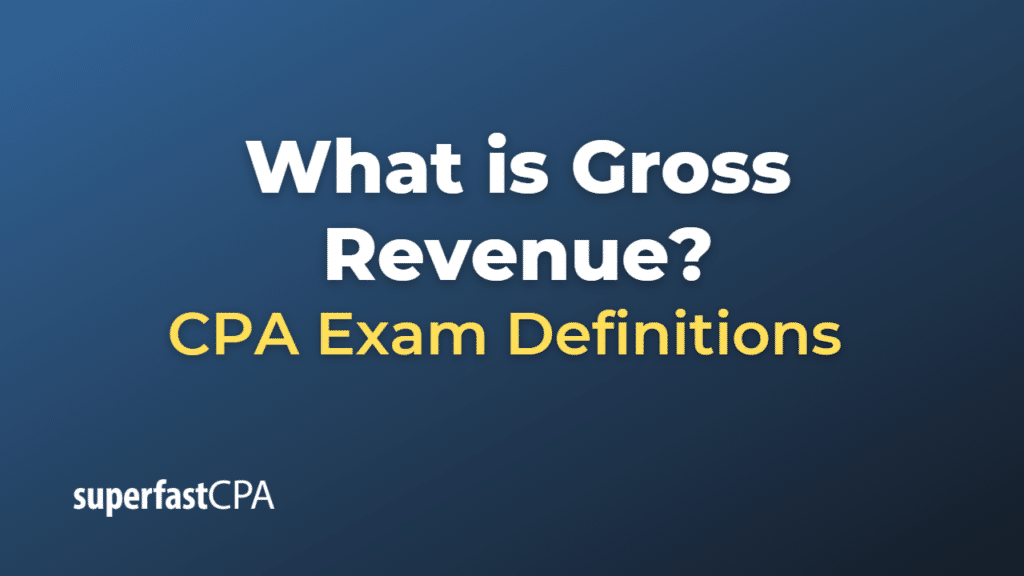Gross Revenue
Gross revenue, also known as gross sales, is the total amount of money generated by a business from its primary operations, without taking into account any deductions or costs. It’s the top line on the income statement and represents the business’s sales before subtracting returns, discounts, allowances, cost of goods sold (COGS), operating expenses, taxes, and other costs.
For example, if a clothing retailer sells 100 shirts at $50 each, the gross revenue would be $5,000. This doesn’t take into account the costs the retailer incurred to produce or acquire the shirts, nor any discounts offered, returns accepted, or other operating costs.
It’s important to note that while gross revenue can give a sense of overall business activity, it doesn’t provide much insight into profitability or operational efficiency. That’s why analysts and business owners often look at net revenue, gross profit, and net income to get a more complete picture of a company’s financial health.
Example of Gross Revenue
Imagine that you own a small bookstore. Over the course of a year, you sell 10,000 books. If each book is sold for $20, then your gross revenue (or gross sales) for that year would be 10,000 books * $20/book = $200,000.
This figure, $200,000, represents the total amount of money generated from your main business operation, which in this case is selling books.
It’s important to remember that this is gross revenue, so it doesn’t take into account any of your business expenses, such as the cost to purchase the books from publishers, salaries for your employees, rent for your bookstore, utilities, taxes, etc. These costs would need to be subtracted to calculate your net income, which would give a better sense of your bookstore’s profitability.













